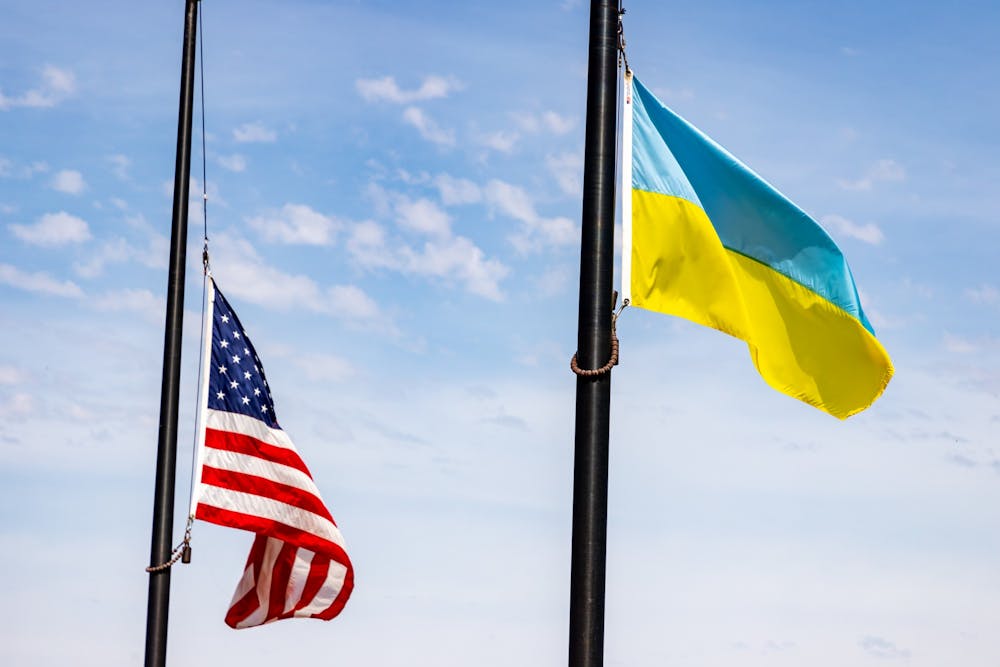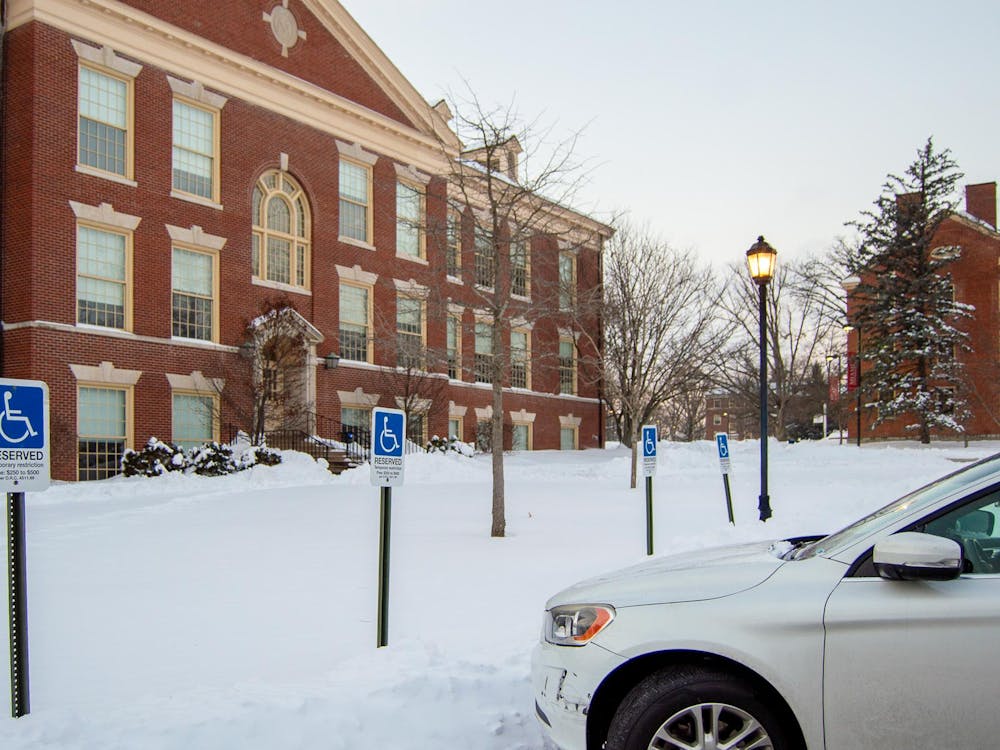Many people have big dreams: buy a house, have a fancy car, be rich. I am not an exception. I had this big dream of moving abroad. Since my childhood, I’ve wanted to get a master’s degree at an American university, but I didn’t know what cost I had to pay. I’m not talking about money. I’m talking about my mental health and well-being.
I live in an apartment without any roommates. This is something I’ve wanted for a long time — to be independent and live without parents. Well, dreams come true. However, in current circumstances, all I think about is that I’m alone all the time — I wake up alone, go to classes alone, go shopping alone, cook alone, come home alone and go to bed all alone. Nobody greets me when I return from classes, nobody wishes me good luck before exams, nobody hears when I cry and nobody is there to support me — hug me and say that everything will be all right.
For these two semesters, I learned to take care of myself, solve problems and make difficult decisions. I never faced the healthcare system in the U.S., billing, insurance, getting to another city, taxes, study plans and so many other little things I can’t even remember now. I learned to stay strong and keep everything inside because my dad who is military once taught me one phrase:
“Panic won't do you any good,” he used to repeat continuously.
And I remembered this phrase. I carried it with me like a bulletproof vest, convinced it would protect me from all troubles. I believed that it would make me tough, and it did.
I stayed strong when the helicopters started to drop bombs that were flashing red and making unbelievably loud noises at our school in 2014 and when our PE teacher screamed, “RUN!”
I stayed strong when moments after that were blurry because of the fear and panic in the air, when my class hid inside the basement of the school, when I thought it was the end, that I would die in that basement and my family wouldn’t ever know because there was no service and they didn’t answer the phone.
I stayed strong when my grandmother picked me up from school because my parents were trapped at work; when the first explosions started and I saw my city on fire; when I witnessed tanks near my house and heard gunshots.
I stayed strong when my dad wasn’t home for a month because he was protecting our city and when he came back home gray-haired, with wrinkles and tears.
I stayed strong when my mom woke me up in the middle of the night with the words, “Pack your clothes. We’re leaving”; when I had to live in a different country, study in a different school and search for a new home; when I was left alone and had to graduate high school without my family.
I stayed strong when I visited my birth city for a week to see all the destruction that happened over three years: holes in the asphalt, a shard in the ceiling of my apartment, cardboard instead of windows and flat ground instead of a bus station.
I stayed strong when I slept under the sounds of bombs exploding somewhere not far away, pretending it was a thunderstorm.
Enjoy what you're reading?
Signup for our newsletter
I carried my dad’s phrase all the way to stay strong, as I was taught, to start a new life in the small town — Sloviansk, Ukraine, two hours away from Donetsk, Ukraine.
It was harder, though, to stay strong when, in February 2022, the war came after me again; when my grandfather died and I wasn’t even able to say goodbye to him. Still, I carried my dad’s phrase with me because I figured I needed to be strong for my mom and make her evacuate with me. I carried it when I was responsible to find another home for us abroad because my mother didn’t speak any foreign language. I carried it because I had to make a crucial decision after several months of living in a different country: whether I had to stay there and support my mom or chase my dream and leave for the U.S.
I’m still trying to stay strong when my family is separated and everyone lives in different countries, even continents, but sometimes it’s so hard that I can’t stand up from bed. A small piece of my heart tears away from me with every bomb dropping on my town, with every missing call from my dad, with every instance of bad news from home.
Somehow I was stronger and felt better at home when I heard the howling of air raid alerts, the vibration of emergency texts and the familiar sounds of the explosions. I was stronger because I knew what to expect; I’d been there. I knew the drill: pack all the valuable things and hide in the basement or at least somewhere with two thick walls. When explosions were quieter, I knew that we were not being bombed at that moment. It was somewhere close, not near us, so I could walk my dog fast and find water and food somewhere. Here, in the U.S., I don’t know what to expect. I’m discovering the world like an infant: doing baby steps to learn how to adapt.
Many people would ask: “Why is it so hard for you? You’re safe now, you have everything you need and you can still call your family.”
I know I’m safe, but my family isn’t. We have different time zones, with seven hours difference, and it’s really hard to find a time when we are all free. Also, I don’t want to bother everyone with my problems and worries because I would hear the same answer: “This is what you wanted. Enjoy.”
I learned my lesson. Dreams come true indeed, so next time I will make wishes carefully.
Daria Propotska is a graduate student studying English language arts. She is from Donetsk, Ukraine, and studies at Miami as an international student




